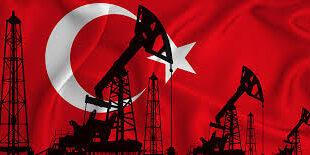Venezuela is taking over the rotating presidency of OPEC for 2018 at a time when the country’s oil production is falling to a nearly three-decade low amid a severe economic crisis and rampant inflation.
While this would be a largely symbolic role for Venezuela to play. the Latin American country has also been part of the Joint Ministerial Monitoring Committee (JMMC) that OPEC had set up to track compliance with the production cuts. Venezuela is keen to see oil prices push higher. and its oil ministry says that the country is firmly intent to achieve oil market balance.
Due to the crisis and inability to afford cash for production maintenance. Venezuela is—unwillingly—overcomplying with its share of the OPEC cuts.
Last week. figures by OPEC showed that Venezuela’s oil production declined by another 82.000 bpd in December to 1.745 million bpd. The Venezuelan government’s self-reported figures showed that production plunged by a massive 216.000 bpd in December. to 1.621 million bpd. The country sitting on the world’s largest oil reserves saw its crude oil production drop by 649.000 bpd in 2017—a 29-percent annual plunge—and probably the worst loss of oil production in a single year in recent history.
While Venezuela’s President Nicolas Maduro blames U.S. sanctions for the collapse of the oil industry. and vows to restore production. oilfield services companies have halted operations in the country because of delays in payments by state oil firm PDVSA. The oil company is trying to service its bond obligations with what little cash it has. Venezuela’s obsolete refineries continue to run at lowered rates. and the country is short on gasoline and basic necessities such as food and medicine.
Meanwhile. at the meeting of the JMMC in Oman over the weekend—at which Venezuela’s newly appointed Oil Minister Manuel Quevedo announced his country’s rotating presidency of OPEC—the cartel said that OPEC and its non-OPEC allies achieved “a record-breaking conformity level of 129%“ in December. with the monthly average conformity level for the 2017 “a remarkable 107%.“
Saudi Arabia’s Energy Minister Khalid Al-Falih said on Sunday that so far OPEC had eliminated more than 220 million barrels from the overhang in the market of around 340 million barrels of oil. while floating storage dropped by nearly 50 million barrels between June and December last year.
“As a result. we are moving ever closer towards a balanced market.“ OPEC’s most influential oilman said.
 Iran Energy News Oil, Gas, Petrochemical and Energy Field Specialized Channel
Iran Energy News Oil, Gas, Petrochemical and Energy Field Specialized Channel




